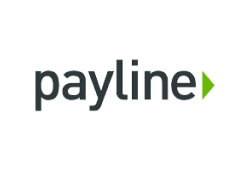Best Payment Gateway in 2026
Updated: September 12,2023
ECommerce is growing fast, so if you want to be part of that trend and accept payments for online purchases, you’re going to need a payment gateway to facilitate online transactions. Payment gateways are merchant services that integrate with your platform and give your business payment processing capabilities. These gateways differ in transaction fees, payment method coverage, and country coverage.
Therefore, finding the best payment gateway is paramount, and our article has identified, reviewed, and compared the top contenders in this market. Read on!
- Easy to implement
- Extensive country coverage
- Simplified PCI compliance
- No PayPal payments
- Cannot be used with own merchant account
Payment Processing
The sheer amount of payment options Stripe supports makes it a favorite payment gateway for eCommerce. Besides processing traditional credit/debit card one-time payments, Stripe allows you to create subscription models and customizable invoices for recurring payments, as well as accept payments through your company’s mobile app.
This level of flexibility is made possible by an impressive set of integrations and developer tools. The easiest way to accept online payments is via the pre-built Stripe Checkout page. Mobile and terminal credit card gateway SDKs allow you to easily accept mobile payments through apps, or in-person POS terminals. As the best eCommerce payment gateway must, Stripe simplifies PCI compliance by hosting the payment fields on its own PCI-compliant servers.
Stripe’s true potential lies with its powerful API. Through Stripe Elements, businesses can design payment pages using pre-built UI components. If you do not have the coding knowledge to implement the API yourself, Stripe can assist you. Additionally, it offers integration with a slew of third-party apps through its partner system.
Aside from offering an excellent payment gateway API, Stripe supports a multitude of payment methods, including all card types and e-wallets. This company supports processing payments in more than 135 currencies across 46 countries, including much of Europe, the US, the UK, Japan, and Australia. Stripe’s one significant downside is that it does not accept PayPal.
Fees
Stripe acts as an all-in-one payment processor, so you won’t need a merchant account to use it. Unfortunately, if you already have one, you cannot use it with Stripe.
Stripe’s flat-rate pricing makes it a great payment gateway provider for small businesses. Stripe doesn’t charge monthly fees, instead taking 2.9% + $0.30 per successful credit card transaction, which is excellent for low-to-medium transaction-volume businesses.
However, companies with higher volumes might lose a significant amount of revenue through these fees. To offset this, Stripe also offers customized plans for larger enterprises. While it does not divulge the exact processing fees, they should be discounted. It’s not the cheapest payment gateway in the US, but with the right deal, its costs don’t have to be a significant detractor.
Aside from transaction processing, this online payment gateway comes with a powerful fraud-prevention tool based on machine learning, as well as acceptance optimization, which automatically updates expired cards and retries failed transactions.
Final Thoughts
If you’re looking for the best online payment gateway for a small business, Stripe is definitely worth considering. This popular payment gateway provides an unmatched level of integration flexibility. Additional features like simplified PCI compliance and fraud protection shouldn’t be overlooked. Its pricing is competitive, but high-volume online businesses might be better served by processors with a different processing fee structure.
- Straightforward pricing
- No hidden fees
- Affordable
- Easy mobile app integrations
- Only accepts US businesses
Payment Processing
Payline isn’t just an online payment gateway. It offers complete card processing services, from in-person payments to mobile and online transfers. Like many top-shelf payment gateways, Payline has a proprietary gateway for accepting online transactions and mobile payments.
The Payline gateway can be easily integrated with 175 eCommerce shopping carts in total. The quick and easy integration process is especially useful for existing eCommerce businesses, as you don’t have to change the look of your store. Hence, you retain the UI your customers are accustomed to. Of course, Payline allows you to accept credit card payments, debit cards, and any other electronic payment method at your store.
As one of the best payment gateways for eCommerce, Payline offers pre-built payment solutions. This is beneficial for non-tech-savvy store owners, as it gives you a customer-ready page for accepting payments. Of course, Payline also offers its APIs and SDKs for those who want to tinker a bit, through which you can easily integrate the payment gateway into your mobile app.
Payline also allows invoice creation and lets you quickly set up recurring billing for customers. Another great feature that places Payline on our best credit card payment gateway list is managing multiple merchant accounts through a single gateway. Other valuable features include batch processing and inventory management for virtual terminal transactions.
Payline comes with full PCI compliance at no additional cost. This is very important for safe and secure online transaction processing. Unfortunately, Payline only works with US businesses at the moment.
Fees
Unlike many payment processors, Payline clearly displays its pricing structure on the website. There are two simple and easy-to-understand transaction tariffs: One for in-person transactions and one for online payments. Thanks to its interchange-plus pricing structure, Payline is one of the cheapest payment processing options available, especially for businesses with higher transaction volumes:
- In-person processing fees: 0.2% + $0.10 per transaction + $10/month
- Online processing fees: 0.4% + $0.20 per transaction + $20/month
Payline supplies each client business with its own unique merchant ID. It doesn’t require you to sign long-term contracts, and there are no hidden additional fees or cancellation fees. There is a monthly minimum of $25 that Payline charges, but even businesses with minimal volumes should cross that threshold easily. PCI compliance also comes at no additional cost.
Final Thoughts
Payline is definitely one of the best payment gateways for eCommerce. While its developer tools might not be as powerful as Stripe’s, it’s highly affordable and offers full merchant accounts and PCI compliance. Pricing transparency is another one of Payline’s key assets.
- Best country coverage
- High acceptance rate
- Robust integration
- Affordable payment gateway
- Not for high-risk businesses
Payment Processing
If it wasn’t already apparent from its vast user base, PayPal is the most-used payment gateway for sending and receiving online and mobile payments; you can even use it to request refunds in more than 200 countries and territories worldwide, in more than 25 currencies. This global availability has allowed PayPal to set itself apart as a top payment gateway for international transactions.
The hallmark of this popular payment gateway is flexibility: PayPal can act either as a basic payment gateway or a full-fledged card processor.
Its gateway-only service is called Payflow, and it’s tailored to businesses with their own eCommerce card processor and merchant account. Payflow will provide an affordable, PCI-compliant checkout solution that’s easy to implement. There are two Payflow plans available: Link and Pro. There are no monthly fees, but there is a small commission, plus an additional transaction fee.
If your platform is one of the 4,414,537 websites that use WooCommerce, so you want a payment gateway that works well with it, you should go with Payflow Pro. This gives you access to a fully customizable payment template that can be hosted on your website. This plan is based on subscription billing, i.e., it has a monthly fee, not just a commission.
On the other hand, if you’re looking for a complete online payment solution, PayPal Business and PayPal Credit are ideal options. Through these services, PayPal acts as a payment aggregator. It doesn’t provide a unique merchant account for you, just online transaction processing. Through this international payment gateway, you can accept all cards, as well as a multitude of other payment methods.
Like other popular payment gateways we’ve reviewed, PayPal also lets you create invoices and set up recurring billing, subscriptions, and pay-later options. You also have a variety of integration options at your disposal. You can integrate a “Pay with PayPal” button by just pasting in a line of code, incorporate PayPal payments into your shopping cart, product, and payment pages, as well as create custom integrations for your platform.
Fees
PayPal has different pricing plans depending on whether you opt-in for full credit card processing or just need a good payment gateway for WordPress, for example.
Here are the fees for PayPal Payflow:
- Payflow Link: $0 setup fee, $0/month, $0.10 per transaction fee
- Payflow Pro: $0 setup fee, $25/month, $0.10 per transaction fee
For businesses in need of a merchant account and credit card processor, PayPal charges flat rates, as follows:
- Domestic transactions: 1.90%-3.49% + $0.49 per transaction
- International transactions: domestic transaction fee + 1.50%
Final Thoughts
So, is PayPal one of the best payment gateways? Absolutely. PayPal offers flexibility and is easy to integrate within your eCommerce infrastructure. Due to its incredible popularity and coverage, you can accept payments online from practically any country in the world, with customers using a payment service they know and love.
- Accept payments from multiple methods, including Venmo
- POS integration
- Recurring payments, subscriptions, and buy now, pay later
- Level 1 PCI compliance
- Not suitable for high-risk businesses
Payment Processing
While Braintree is a division of PayPal, its payment processing services are entirely separate. However, these two payment gateway providers are similar in that they both offer full payment processing and a payment gateway only.
The latter option targets customers who merely need an online payment platform. Braintree’s payment gateway is compatible with most US merchant accounts, and of course, costs significantly less than its full merchant services.
Of course, like other providers on our best gateway list, Braintree mainly advertises its full merchant service. Besides allowing you to accept credit cards, Braintree also enables you to process payments from debit cards, Apple Pay, Google Pay, PayPal, and Venmo (US-only).
In addition to one-time payments, you can also set up recurring charges and have the “buy now, pay later” option. Although Braintree mainly focuses on eCommerce payments, it also has POS processing tools, so you can accept local payment methods.
When it comes to integrations, Braintree offers two methods of direct checkout integration - via the drop-in UI and custom UI. Their drop-in UI provides a customer-ready payment interface that’s incredibly easy to implement and requires no coding skills. On the other hand, if you want to get a payment gateway for your website and customize it, you’ll have to streamline PCI compliance by yourself.
Braintree also supports many third-party integrations with shopping-cart, accounting, and enterprise plug-ins.
Braintree truly excels at security and fraud protection: All the payment information that goes through Braintree’s payment gateway is encrypted. Braintree is a Level 1 PCI-compliant service, at no additional cost.
Besides being an excellent payment gateway for WooCommerce and other online shopping solutions, Braintree provides robust transaction reports with insights into the transactions processed through your eCommerce store.
Unfortunately, Braintree has somewhat limited international coverage compared to other online payment providers. The supported countries and territories include the US, Canada, Australia, Singapore, Hong Kong, Malaysia, New Zealand, and several European states. On the plus side, merchants can accept payments in more than 130 currencies.
Fees
The pricing for Braintree is on par with other payment gateways. The transaction fees for the full merchant services are 2.9% + $0.30 per transaction.
Final Thoughts
At first glance, Braintree isn’t all that different from much of the competition. However, its transparent pricing, excellent integration capabilities, and massive list of supported currencies make it a viable alternative to online payment tools like PayPal.
Top Rated Payment Gateway Services in 2026
- Stripe - Best for Developers
- Payline - Best for High Transaction Volumes
- PayPal - Best for International Businesses
- Braintree - Best for Multiple Payment Methods
- Authorize.net - Best for WooCommerce Integration
How We Evaluate Payment Gateway Services
Since global eCommerce sales surpassed $4.8 billion in 2021, the importance of seamless transfers has become indisputable. Still, to an untrained eye, all payment gateways may seem identical. However, while they all offer online payment services, fees, integration options, and merchant account offers vary by provider and affect your bottom line. Here’s the evaluation methodology we rely on when reviewing and scoring payment gateways:
A merchant account is a type of bank account that enables businesses to process card payments. This bank account is unique to your business, and opening one is an essential step in the lead-up to selecting the best payment processor. The application process involves bank underwriters looking into your credit and payment history and that of your business. However, some payment gateway providers can open this account for you, saving you time and effort - for a price. They also differ in whether they provide you with a unique merchant ID or act as a third-party processor.
Payment processing companies charge for their services, either via transaction fees, or (less often) through monthly fees. The most significant ones are transaction fees: As a rule, the top payment gateways charge a percentage of each transaction or a fixed amount. The costs largely depend on whether the processor provides you with a merchant account or you have your own.
For businesses with bespoke merchant accounts, transaction fees are usually slightly higher than interchange fees - unavoidable transaction costs charged by credit card networks. If the processor provides a merchant account for you, the prices can be significantly higher: Between 1.5% and 3.5% of the total transaction, plus a fixed processing fee. These fees are also generally higher for international payments than domestic transfers.
The best payment processor for eCommerce will offer both types of pricing. Conventional wisdom says businesses with a smaller transaction volume can stick to third-party processors, as they won’t lose too much money since the fees are percentage-based. However, once your transaction volume increases, you’re better off with a merchant account and a fixed monthly fee to avoid hemorrhaging money when the percentages stack up.
Aside from transaction costs, some processors may charge setup, termination, and monthly fees. The key to picking the right online payment processing provider is reading the fine print and calculating potential costs based on your current transaction volume.
Even the best online payment processors don’t have complete global coverage: While there are payment gateways that support a massive number of countries and their respective currencies, they still vary greatly, so this is an important factor for anyone adopting a specific payment gateway.
In general, businesses in the US, UK, and other parts of Europe are almost always fully covered. If your business is located in a country the payment processor supports, you’ll be able to accept payments from anywhere in the world. However, even the best online payment processor has a limited number of currencies it can accept transactions in.
Additionally, not all processors accept the same payment methods. Aside from major credit cards and debit cards, it might be worth checking whether the processor accepts payments from e-wallets, direct deposits, etc., and whether there’s a specific payment method fee for any of them.
Besides transaction processing, the primary purpose of payment gateways is to seamlessly integrate into your eCommerce platform. Slow or complicated payment processes might annoy customers and negatively impact your sales. Luckily, most online payment solutions feature the pre-built checkout page option.
Payment gateway providers should offer instantly usable checkout pages which require no coding experience to set up. The majority of providers also offer API integrations, creating customized payment pages, and a variety of other solutions. Don’t get overwhelmed by the choices, though - focus only on the things your business really needs, or the extra costs will stack up quickly.
It goes without saying that payment processing involves handling extremely sensitive customer data. Therefore, it’s imperative that you protect your site. Payment gateway providers must adhere to the Payment Card Industry Data Security Standard. The PCI represents a unified data security standard required from all entities that process card payments. While PCI compliance is not required by federal law, individual states have local legislation that directly refers to the PCI DSS.
The PCI Security Standards Council manages PCI compliance, and many payment gateways provide the necessary security measures for it. This body, comprised of major card brands, works to enhance global payment account data security. Failure to comply can lead to financial penalties and even get you banned from accepting card payments. Therefore, the best online payment gateway will be fully PCI-compliant.
Frequently Asked Questions
FAQ
If you already have a merchant account, PayPal offers the most affordable payment gateway. Payline is the best option for high-transaction-volume businesses, while Stripe, Braintree, and Authorize.net will cost small and medium merchants roughly the same.
PayPal and Stripe are the best payment gateways in the UK.
No. There aren’t any companies that will process credit card payments for free. If you already have a merchant account and a processor, you can get a payment gateway with a minuscule transaction fee from PayPal, Braintree, or Authorize.net.
The best Payment gateway companies charge 2.9% + $0.30 per transaction if they’re acting as a merchant account provider or payment aggregator for you. If you already have a merchant account, you can get a payment gateway for a $0 to $10 monthly fee and a $0.10 transaction charge.
Your email address will not be published.









